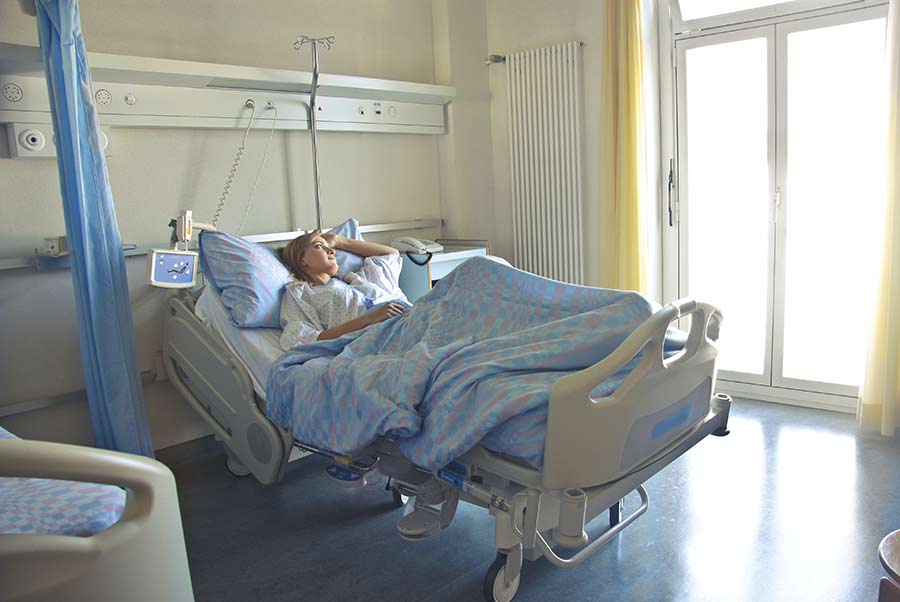What to Expect for Your Upcoming Surgery?
Having to undergo surgery, even relatively minor procedures, can be stressful! A significant reason for this concern is that, for many people, this is the first time they or their loved ones are undergoing any procedure. Even if you have had surgery before, an upcoming procedure may differ from your previous one. It helps to know what to expect during the whole process and that you’ve chosen the best surgeon to be best prepared for your procedure and ease anxiety. This is extremely important. You need to feel comfortable about your proposed procedure, your choice of surgeon, and your instructions for preop and postop care.
Studies have shown that those patients that are able to pray, meditate, or otherwise find peace before their procedures have less pain afterward than others who continue to feel stress up until their surgery time. Educate yourself about the process and find your happy place before surgery!
What Happens During a Surgical Office Visit?
If your doctor determines that you need surgery, they should go over the procedure in detail during your office visit. This should include the condition that is being addressed, the basic concept of the surgery, the benefits to be expected after the procedure, the basics of recovery, and any potential problems you may have. Be sure to share any concerns with your provider, including medical issues, insurance coverage, and logistics. You will have some paperwork to fill out before surgery. Forms must be completed to the best of your ability to ensure no unexpected delays or cancellations.
It is of paramount importance that your surgeon knows of your other medical conditions and medications as these could affect your surgical options and outcome. As well, your past surgical history is very important. If you have had previous surgery in the same area it may drastically affect any subsequent surgery.
Even if you are unsure what exactly was done before, make every effort to find old records and allow your surgeon the knowledge of past surgeries which could have changed your anatomy on the inside.

How Do I Prepare the Day Before Surgery?
If not confirmed already, you should receive a call by the day before surgery to confirm the surgery time and review the process. Most surgical suites need you to arrive at least 2 hours before surgery starts. Please be on time, since being late can delay or even result in cancellation. Arrange all other concerns so that you do not get delayed performing other tasks on the day before surgery. (Make arrangements to have tasks completed prior to the day of surgery. Dedicate the day of surgery for your operation and recovery time.)
If you are undergoing general anesthesia or even conscious sedation, it was previously standard not to eat or drink anything after midnight except necessary medication with a sip of water the morning of surgery. Now, most anesthesia groups will allow you to drink clear liquids such as water or gatorade up until about 3 hours before surgery. A clear liquid is usually defined as a liquid that you could have in a glass and see through that glass. Milk is definitely not a clear liquid. You can have black coffee up to 3 to 4 hours before your surgery, but do not add cream or milk. Please review your specific instructions, as different anesthesia groups may consider different rules and remember that even if it’s clear liquids in your stomach, if it comes up your esophagus when you are under anesthesia, that reflux will contain acid from your stomach and can cause damage to your lungs if it gets in your windpipe.
If you are undergoing anesthesia for your procedure, you will need to arrange someone to drive you to and from the surgical suite and likely need someone to stay with you that night. This rue has become more stringent during the last few years and surgeries are canceled now when a patient doesn’t have someone that can help monitor them for the 12 to 24 hours after surgery.
What Happens the Day of my Surgery?
When you arrive at the surgical suite, you will be asked to check-in and change into a surgical gown. Depending on the type of surgery, you may need to have additional preoperative tests done along with the placement of a small, IV catheter. Most locations allow family members to stay with you in the preoperative area until it is time for you to go back for surgery.
What Happens During A General Surgery Procedure?
When it is time for surgery, you will be wheeled back to the operating room, and your family will go to the waiting area. It is sometimes acceptable with smaller children for a single parent to accompany their child to the operating room until the child goes to sleep.
When you get to the operating room, there will be several people in the room, including the following:

- Surgeon: Performs the surgery
- Surgical Tech: Responsible for sterile surgical equipment
- Surgical Assistant (such as a first assist or physician assistant): Assists with the procedure
- Anesthesiologist or Nurse Anesthetist: Responsible for the anesthesia
- Circulating Nurse: Responsible for the non-sterile surgical equipment in the room
You will likely need to be transferred from your surgical gurney to a small, narrow bed where you'll be secured with a safety belt. You may have stockings applied to prevent blood clots. A blood pressure cuff will be used to monitor. If you have general anesthesia, you can expect a mask to be placed over your face, which will provide oxygen while you sleep. Once asleep, a tube is usually positioned at the back or your mouth or down your trachea (windpipe) to control your breathing. Other monitoring devices may be placed at this time as well. For the duration of the surgery, you will be asleep and not feel any pain.
If you have local anesthesia, the staff will apply a cold soap around the surgery area and place sterile sheets to keep the area clean. Local or regional anesthesia may be applied or injected to minimize any pain. Local anesthesia usually burns for a few seconds when it is injected. Should you feel excessive pain, make sure you inform your surgeon at that time.
What Happens After General Surgery?
Once your surgery is completed, you will return to a gurney and be wheeled to recovery. You will likely have an oxygen meter on your finger, a blood pressure cuff on your arm, and a nasal oxygen cannula in your nose. During the first part of your recovery, your family will not be able to visit. As you begin to wake up, you should be able to see your family. If you are staying overnight, you'll be transferred to a patient room. Once you've reached your doctor's expectations for release, you will be able to go home.
What Steps Can Help Prevent Surgical Infection?
Surgical infections are relatively rare in this day and age. To ensure this, your team may do several things to help keep you as safe as possible:

- Since smoking is known to increase the risk of infection, it's advised to quit smoking for four weeks before surgery..
- Do not shave hair at the site before surgery since this may increase the risk of infection. If required, your hair will be clipped around the surgical site before surgery by your medical team.
- Your surgeon may give you a surgical soap to apply before surgery. Please be sure to follow the instructions.
- Your surgical team will also cleanse the area with an antimicrobial soap before beginning surgery.
- Your surgical team wears sterile gowns and gloves. They will also use sterile sheets, equipment, and bandages.
- You may be given antibiotics before surgery to prevent infection.
- Consider immunonutrition. Surgical stress can weaken your immune system, making you more prone to infection. Certain nutrients including omega-3s and the amino acid arginine contain immune enhancing ingredients. These nutrients are also found in Ensure Surgery Immunonutrition Shake which is recommended for consumption the week before and after surgery. Stop fish oil, turmeric, cinnamon, and other supplements that can increase the risk of bleeding 2 weeks before surgery.
How Can I Control Pain After Surgery?
Every person reacts differently to surgery and levels of pain. Depending on the surgery, different methods of pain control can be helpful. Local and general anesthesia usually controls pain for the first 24 hours. If you can take NSAIDs (Non-Steroidal Anti-Inflammatory Drugs), such as ibuprofen or naproxen, this can help significantly reduce the level of pain and swelling. These medications are known as anti-inflammatories and can decrease swelling. Acetaminophen (Tylenol) is not an anti-inflammatory, but helps with pain and can be taken with NSAIDs to manage pain further. Ice packs, placed for no more than 15 minutes without a break for 10 to 15 minutes, can assist with swelling and pain as well.
Should this be insufficient, you may be prescribed narcotic pain medication. If so, make sure you follow the instructions carefully. Do not exceed the recommended dosage or consume alcohol or previously prescribed benzodiazepines (valium, xanax, ativan) when taking narcotics. Make sure you take a stool softener, such as docusate, with your pain medication. You may require a laxative if you do not have a bowel movement on your usual schedule. Narcotics cause constipation. Some narcotics include acetaminophen (Tylenol) with them, so please be mindful of using Tylenol as you never want to exceed 4,000mg acetaminophen per 24 hours.

What Happens During A Post Surgery Follow Up Appointment?
Most surgeries require a follow-up appointment so your doctor can assure your healing is progressing as planned. Make sure to call the office the day after discharge from the hospital to schedule a follow-up. If you have concerns before your follow up, contact your provider immediately. Your doctor may recommend post-operative stretching.
For additional information, read our blog: What Is Outpatient Surgery?
When Should You Contact a General Surgeon?
Sports hernias are painful. We can help. Schedule an appointment if you think you might have one. You can contact us at (208) 321-4790 or submit a contact form to request a consultation and examination if you have groin pain consistent with a sports hernia that has persisted after an appropriate period of abstaining from the offending activity.
Boise's Top Rated General Surgeon
Dr. Steven Williams has been practicing surgery in the Treasure Valley of Idaho since 2002. Dr. Williams manages the treatment of hernia repair, gallbladder surgery, Hiatal Hernia / GERD (Gastroesophageal Reflux Disease) spleen surgery, lipoma removal, melanoma treatment as well as other malignant and benign surgical diseases with a focus on minimally invasive approaches and advanced laparoscopy and robotic surgery. Incorporating advanced surgical methods in everyday procedures reduces recovery time and dramatically benefits patients. General surgery with Dr. Steven Williams encompasses a wide variety of office-based, inpatient, and outpatient procedures.